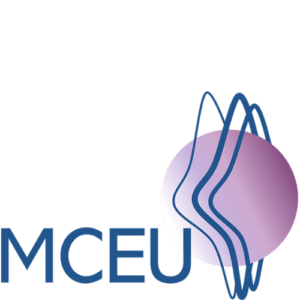Diplomasafe EU Projects
At Diplomasafe we are proud to be at the forefront of innovation and digitisation in the European educational landscape.
Find a detailed overview of our involvement below!


EBSI-Vector
We are dedicated to harnessing the potential of blockchain and the self-sovereign identity paradigm within the realms of education and social security.

MCEU Hospitality
We are pioneering the implementation of the EU approach to micro-credentials, with partner educators in the hospitality sector via this first pilot supported via Erasmus+

EBSI-Network Expansion
We are committed to supporting the development and widespread adoption of the European Blockchain Services Infrastructure (EBSI) network at the European level.
EBSI-Vector: EBSI enabled Verifiable Credentials and Trusted Organisations Registries
Project Description
In collaboration with 52 partners from 20 countries, EBSI-VECTOR is dedicated to redefining the digital interactions of European citizens within their educational and professional journeys, all within a decentralised framework. Concurrently, the project aims to streamline complex verification processes for organisations.
The consortium behind EBSI-VECTOR leverages the existing capabilities of the European Blockchain Services Infrastructure (EBSI) pertaining to verifiable credentials and trusted registries. One of the primary objectives of the project is the development and execution of a strategy aimed at expanding EBSI’s capabilities and fostering their adoption across diverse countries. This endeavour entails active engagement with numerous stakeholders in the realms of education and social security. To facilitate this mission, national coordination and support units are established to drive comprehensive implementation efforts within the education sector and pilot innovative solutions in the domain of social security.
At the core of this project lies the provision of essential building blocks and tools designed to empower both individuals and organisations, enabling secure interactions through the utilisation of verifiable credentials. EBSI-VECTOR harnesses the privacy-friendly verification capabilities inherent in EBSI’s decentralised trusted registries, ensuring the integrity and security of these digital interactions.
Our Role
Diplomasafe is a key part of the EBSI-VECTOR project, focusing on improving digital credential verification across Europe. Our main goal in this pilot project is to implement a new process for issuing and verifying EBSI credentials for 9 Danish universities. The initiative enables universities to issue digital credentials and allows graduates to receive and use them, such as for job applications or further education. Through this work, we will provide feedback on the user journey and contribute to our vision of making digital credentials widely accepted and trusted across Europe, fostering a more connected and reliable educational system.
Project duration
24 months (June 2023 – June 2025)
Funding programme
Digital Europe

Co-founded by the European Union. Views and opinions expressed are however those of the author(s) only and do not necessarily reflect those of the European Union or the European Health and Digital Executive Agency (HADEA). Neither the European Union nor the granting authority can be held responsible for them.
MCEU: Upskilling the EU Hospitality Industry with Portable Micro-Credentials
Project Description
The MCEU Hospitality project addresses vocational education and training challenges. It establishes an interconnected system tailored for the hospitality sector to identify skills gaps and employ micro-credentials in line with EU skills policy. The project aims for global expansion by collaborating with vocational education and training (VET) providers, employers, and stakeholders, creating a transformative cooperative system.
To combat micro-credential underutilisation, the project partners closely with VET providers and hospitality employers. These micro-credentials meet EU standards and cater to sector-specific needs, advocating for their value among workers, employers, and training providers. The project plans to streamline technical and regulatory complexities by creating an online platform for portable digital micro-credentials, harmonising existing EU tools like EDC, EBSI, and Europass.
Its core objectives include developing a comprehensive solution with high-quality micro-credentials and an interconnected system, continuous improvement through the MCEU framework, a user-friendly digital platform adhering to the European approach, and fostering robust collaborations among VET providers, employers, industry experts, and social partners to ensure widespread micro-credential adoption.
The consortium, consisting of seven partners from four countries, units to drive innovation and transformation in hospitality vocational education and training. The mission is to enhance skills development, benefiting learners, workers, and employers, while aligning with EU skills policy and standards.
Our Role
Diplomasafe is dedicated to developing a comprehensive online platform tailored for the issuance of micro-credentials, aligning with the European approach to micro-credentials. This innovative platform will serve as a solution for micro-credentials, ensuring a reliable, interoperable platform while maintaining compliance with EU standards. It will facilitate the portability of micro-credentials, enabling their recognition across different countries, employers, and education and training systems, as well as within various employment sectors.
By providing a robust infrastructure, Diplomasafe aims to streamline the process of managing micro-credentials, making it easier for individuals to showcase their achievements and for institutions to recognise and verify these credentials efficiently. The platform’s design will also incorporate feedback mechanisms to continuously improve its functionality and user experience, ensuring it remains at the forefront of digital credentialing technology.
Project duration
36 months (January 2024 – January 2027)
Funding programme
Erasmus+

Co-founded by the European Union. Views and opinions expressed are however those of the author(s) only and do not necessarily reflect those of the European Union or the European Health and Digital Executive Agency (HADEA). Neither the European Union nor the granting authority can be held responsible for them.
EBSI Network Expansion
Project Description
The primary objectives of EBSI-NE encompass increasing the number of validator nodes within the production EBSI network and delivering crucial support services to all stakeholders engaged with EBSI. Through these endeavours, the consortium endeavours to elevate the robustness and maturity of the EBSI production network, thus paving the way for the realisation of prioritised EBSI cross-border use cases.
Concretely, the project will yield the incorporation of 18 new validator nodes into the EBSI production network, coupled with the provisioning of support services by 24 entities spanning diverse regions within the EBSI ecosystem. The comprehensive activities undertaken not only encompass the requisite tasks for deploying EBSI production nodes but also include voluntary initiatives aimed at amplifying performance, adoption, and the holistic advancement of the EBSI network.
The consortium is constituted by 24 organisations originating from 14 European countries, including government agencies, public institutions, and academic bodies. Each member brings to the table extensive expertise in Distributed Ledger Technologies and prior involvement in EBSI ecosystem initiatives, including the deployment of pre-production nodes.
Our Role
Diplomasafe is an important part of the EBSI-NE project, helping to develop and grow the European Blockchain Services Infrastructure (EBSI) network. A main goal of the EBSI-NE consortium, which includes Diplomasafe, is to expand the EBSI network across Europe by increasing the number of validator nodes and providing support to all involved parties. We are responsible for setting up the first Danish node in the production, pre-production, and test environments upon approval from the Danish Agency for Digitalisation. This work is crucial for maintaining a secure and decentralised EBSI network, significantly contributing to its expansion and effectiveness across Europe.
Project duration
24 months (November 2023 – November 2025)
Funding programme
Digital Europe

Co-founded by the European Union. Views and opinions expressed are however those of the author(s) only and do not necessarily reflect those of the European Union or the European Health and Digital Executive Agency (HADEA). Neither the European Union nor the granting authority can be held responsible for them.
